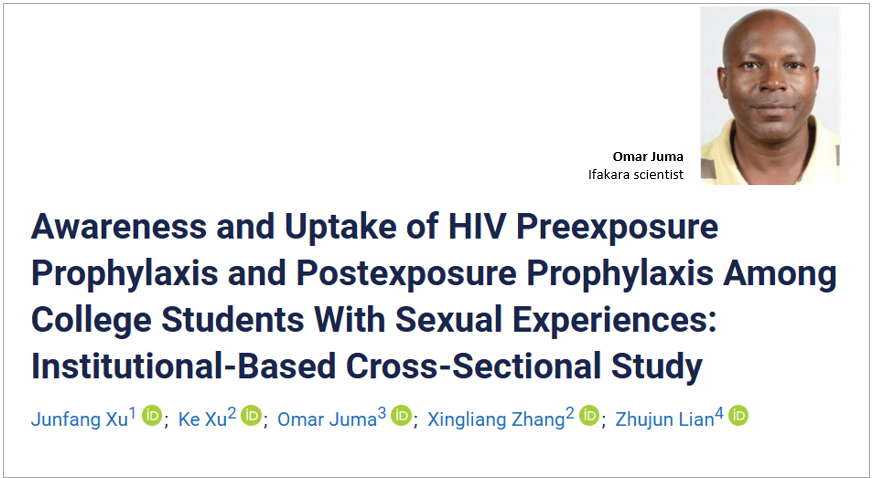
HIV CARE: Addressing low awareness, utilization of preventive drugs

To reduce the risk of HIV infection among college students, scientists emphasize the need to raise awareness about using PrEP (Pre-Exposure Prophylaxis) and PEP (Post-Exposure Prophylaxis), two vital HIV prevention methods.
This call follows a study in China, which found that college students with sexual experiences have limited knowledge of, and rarely seek, PrEP and PEP services.
“It is necessary to promote the awareness of PrEP and PEP services for this group of people who are at risk of HIV infection, considering that PEP facilitates HIV prevention,” the study’s authors stated in their paper published in the JMIR Public Health and Surveillance journal.
The research, led by scientists from China and Tanzania—including Omar Juma from Ifakara Health Institute—aimed to provide evidence for effective interventions to reduce HIV risk among young students.
The study focused on analyzing the awareness and uptake of HIV PrEP and PEP among college students with sexual experiences located in Hangzhou, Zhejiang Province in China.
Awareness vs. Utilization
The study, which surveyed 2,605 college students, found that while many were aware of PrEP and PEP interventions, the majority did not seek out these services.
The high awareness was attributed to increased HIV prevention efforts in the region over recent years, particularly targeting young people. However, despite this awareness, only 5.6% of participants reported seeking PrEP or PEP, which is concerning considering the potential of these treatments to prevent HIV infection, especially after high-risk exposure.
To close this gap between awareness and usage, the scientists recommended more targeted campaigns on college campuses to promote the availability and safety benefits of PrEP and PEP.
Sources of information
Participants primarily learned about PrEP and PEP through school clubs and the Internet, highlighting the importance of these platforms in disseminating health information. Citing similar studies, the scientists also note that previous findings show that promoting HIV education through student communities can improve knowledge, attitudes, and behaviors related to HIV prevention.
Recommendations to increase usage
The study calls for more targeted interventions to increase the usage of PrEP and PEP among college students. This includes addressing misconceptions and reducing stigma through peer education and outreach.
Providing accurate information on the efficacy, safety, and availability of PrEP and PEP drugs – especially through trusted sources like college health services – can help dismiss concerns and encourage more students to seek these preventive treatments.
Read the publication here.
